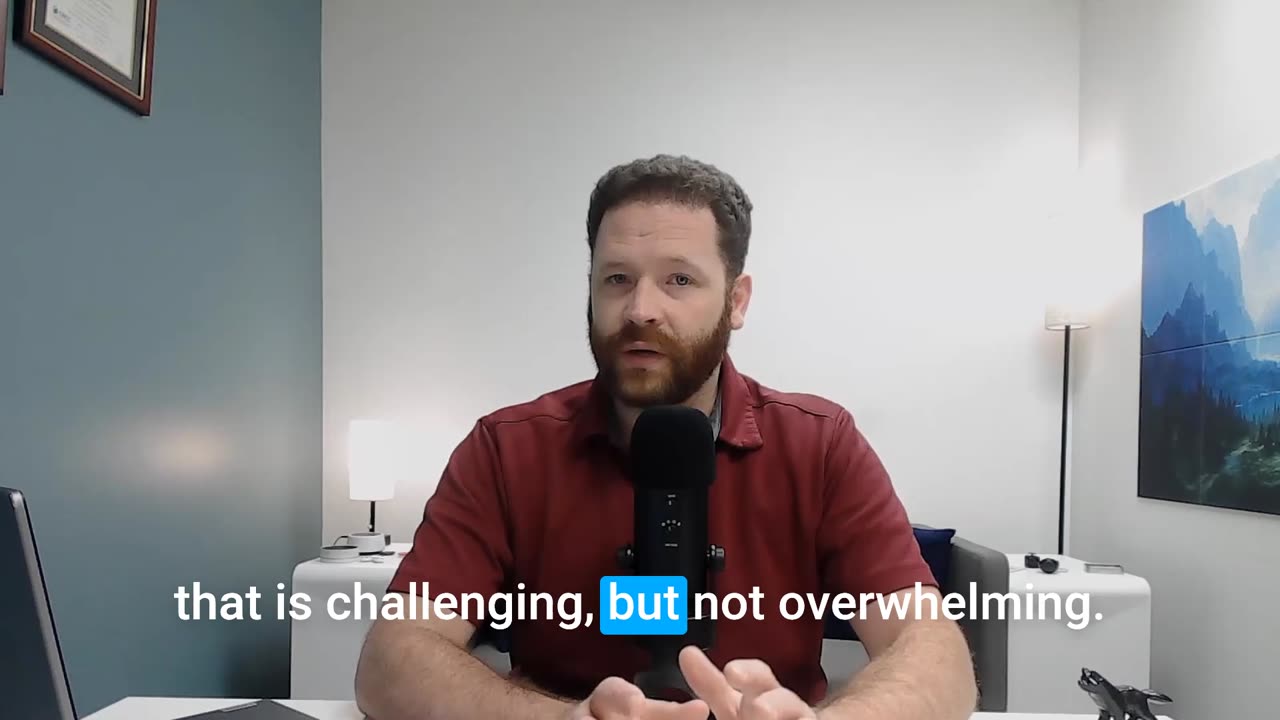Premium Only Content

Therapeutic Journaling | A Therapist Explains
00:00 Introduction to Therapeutic Journaling
00:03 Pennebaker's Groundbreaking Research
00:39 Benefits of Expressive Writing
01:02 Key Elements of Therapeutic Journaling
02:39 Practical Tips for Effective Journaling
The Science Behind Therapeutic Journaling: How Expressive Writing Heals
Explore why therapists often recommend journaling as a form of therapy. Learn about social psychologist James Pennebaker's groundbreaking research in the 1980s that laid the foundation for modern therapeutic journaling. Pennebaker's studies revealed numerous benefits such as improved immune function, reduced blood pressure, and lower levels of depression and anxiety. This video discusses the key elements that differentiate therapeutic journaling from regular diary-keeping, including focusing on emotional expression, writing continuously for set periods, revisiting the same memory, and avoiding re-traumatizing topics. Practical tips for effective journaling and considerations for those with severe trauma are also covered. Ready to give it a try? Start your therapeutic writing journey with our guided steps.
Disclaimer:
The following content is for educational and informational purposes only. It is not therapy, nor is it a substitute for professional mental health care, diagnosis, or treatment. Viewing this content does not create a therapist-client relationship.
The stories shared in this video are inspired by real people and real experiences, but the details have been changed, dramatized, or entirely fictionalized to protect privacy and enhance storytelling. Any resemblance to actual persons, living or dead, is purely coincidental.
Everyone's situation is unique, and the tips or perspectives shared here may or may not apply to your specific circumstances. Please use this information at your own discretion, and always consult a qualified professional for advice tailored to your needs.
If you are in crisis or need mental health support, call or text 988 (in the U.S.) to reach the Suicide & Crisis Lifeline, or contact a licensed provider in your area.
-
 1:00:21
1:00:21
Akademiks
3 hours agonba youngboy live show.
35.7K2 -
 2:51:15
2:51:15
The Quartering
3 hours agoThey Just Stopped Another Attack, Trump Defeats Youtube, Hasan PIker Meltdown & More
51K35 -
 2:03:20
2:03:20
megimu32
3 hours agoOn The Subject: Football Movies of the 90s & 2000s
8.76K3 -
 2:55:20
2:55:20
Technically Mexican
3 hours agoI Play Hollow Knight: SILKSONG! #18
4.97K -
 LIVE
LIVE
SlingerGames
2 hours agoMega Monday | Skate and More
5 watching -
 8:54:37
8:54:37
Dr Disrespect
12 hours ago🔴LIVE - DR DISRESPECT - BABY STEPS - TO THE TIPPITY TOP
196K17 -
 LIVE
LIVE
Drew Hernandez
9 hours agoTRUMP'S NEW GAZA PEACE PLAN & NETANYAHU LAUNCHES NEW SOCIAL MEDIA OP
685 watching -
 1:16:32
1:16:32
FreshandFit
10 hours agoMoney Monday Call-In Show w/ Steve From Accounting
22.4K3 -
 3:07:28
3:07:28
Nikko Ortiz
6 hours agoArena Breakout Better Than Tarkov? - Rumble LIVE
45.8K2 -
 35:44
35:44
MattMorseTV
5 hours ago $0.62 earned🔴Schumer just WALKED INTO Trump's TRAP.🔴
48.2K108